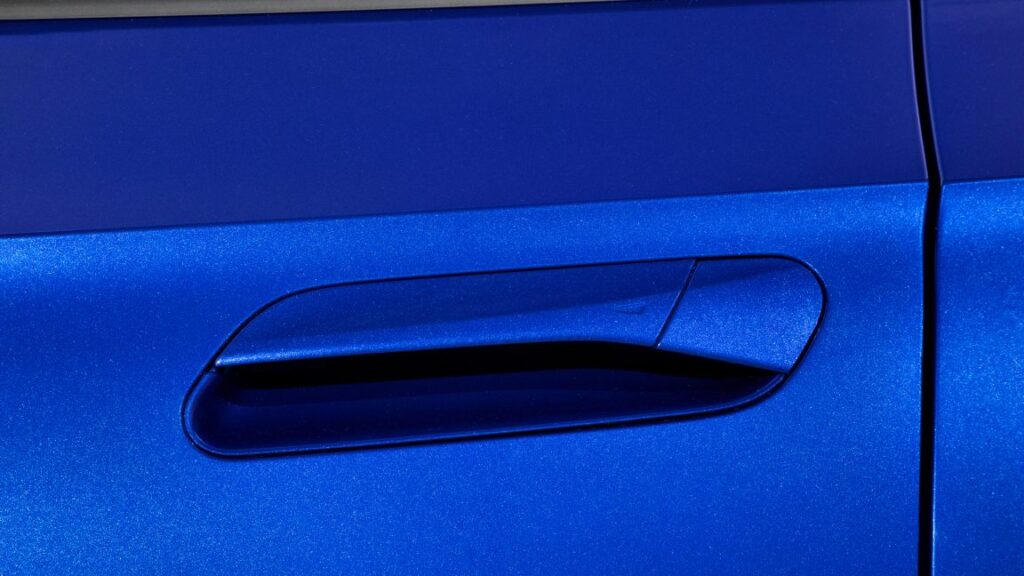VW will offer “highly competitive” leases on ID.4 as sales restart
Last September, faulty door handle hardware caused Volkswagen to take the rather drastic steps of suspending sales and production of the electric crossover, as well as recalling almost 100,000 customer cars. Now, it says it has new parts that will allow it to fix existing cars, lift the stop-sale order, and soon, resume production at its factory in Chattanooga, Tennessee.
The ID.4, like many new EVs, features flush door handles in service of the all-important effort of drag reduction. Instead of conventional mechanical handles that interrupt the laminar air flow down the side of the car, VW instead went with an electromechanical solution.
Unfortunately, the door handle assemblies weren’t sufficiently waterproofed, allowing the electronics inside to corrode. Consequently, early last year VW started getting complaints of ID.4s with doors that would intermittently open while driving, with reporting almost 300 warranty claims by September, when it pulled the car from sale, issued the recall, and stopped the production line.
That line will restart “in the coming weeks,” VW says, and now that there are new and improved door handles available, dealers will now be able to complete the recall. That also means that any ID.4s in inventory can be fixed and then sold. To sweeten the deal, the automaker says that it will offer some “highly competitive lease offers,” as it hopes to send its clean crossover back up the sales charts.
VW will offer “highly competitive” leases on ID.4 as sales restart Read More »

